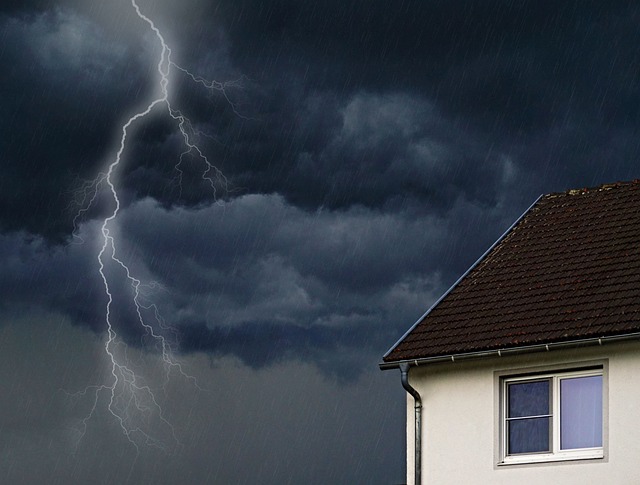When faced with the unforeseen—such as theft, disaster, or destruction—the resilience of personal property coverage becomes paramount. This article delves into the nuances of personal property insurance, specifically contrasting replacement cost and actual cash value coverage within homeowners and renters insurance policies. Understanding the implications of each can significantly influence the level of protection you afford your personal belongings. We’ll explore how replacement cost insurance stands out by covering the full expense to replace items without depreciation concerns, ensuring that policyholders can restore their possessions to their pre-loss state. Beyond the financial safeguard, we’ll also examine the broader aspects of property damage protection, liability coverage, and loss of use insurance that complement replacement cost insurance to offer a comprehensive shield against life’s unexpected events.
- Navigating Personal Property Coverage: Understanding Replacement Cost vs. Actual Cash Value
- The Role of Homeowners and Renters Insurance in Protecting Your Belongings
- Comprehensive Property Damage Protection through Replacement Cost Insurance
- Beyond Replacement: Liability Coverage and Its Importance in Personal Property Insurance
- Ensuring Continuity of Life: Loss of Use Insurance for Adequate Protection
Navigating Personal Property Coverage: Understanding Replacement Cost vs. Actual Cash Value

When evaluating personal property coverage options within homeowners or renters insurance policies, it’s crucial to distinguish between replacement cost insurance and actual cash value coverage. Replacement cost insurance is designed to offer comprehensive protection for your personal belongings. It ensures that if your property is damaged or destroyed, you receive funds sufficient to purchase a new item with similar kind and quality, disregarding depreciation. This means that if your five-year-old flat-screen TV is stolen, replacement cost insurance will cover the cost of a brand-new TV, not one that’s five years old in condition. On the other hand, actual cash value coverage takes into account depreciation, which can significantly impact the amount you receive for a claim. As a result, with actual cash value coverage, you might find yourself short of the funds needed to fully replace your personal items, especially for electronics, appliances, or furniture that depreciate rapidly.
Property damage protection within these policies often extends beyond just covering individual items. It encompasses a wide range of personal belongings, from jewelry and clothing to home electronics and sports equipment. This broad scope is why it’s imperative to fully understand the coverage details, including the limits and stipulations associated with replacement cost versus actual cash value. Additionally, liability coverage within these policies can offer financial protection if someone is injured on your property and decides to sue you for damages. Loss of use insurance is another critical component that helps cover additional living expenses if a covered event makes your home temporarily uninhabitable. By carefully considering the specifics of replacement cost versus actual cash value, individuals can make an informed decision that aligns with their financial situation and the value of their personal property. This choice can make a significant difference in the level of security and recovery available to you in the unfortunate event of property damage.
The Role of Homeowners and Renters Insurance in Protecting Your Belongings

When considering the safeguarding of your personal possessions, understanding the nuances between different types of personal property coverage within homeowners and renters insurance is paramount. Homeowners insurance typically includes a range of coverages that extend beyond the structure itself to protect your personal belongings from various perils such as fire, theft, or natural disasters. This encompasses everything from furniture to electronics and clothing, ensuring that your lifestyle remains intact even in the face of unexpected events. Renters insurance, similarly comprehensive, offers coverage for personal belongings against the same risks, recognizing that renters, too, have valuables that are essential to their daily lives.
Within these policies, replacement cost insurance stands out as a critical component. It ensures that should your personal items be damaged or destroyed, you will receive funds sufficient to purchase new ones of comparable quality and similar kind without the deduction of depreciation. This is particularly advantageous for high-value items such as electronics or jewelry whose value can deplete over time. Beyond property damage protection, these policies may also include additional living expense coverage, commonly known as loss of use insurance. This provision kicks in when a covered event renders your home uninhabitable, providing funds to temporarily relocate and maintain your standard of living during the repair or rebuilding process. Lastly, liability coverage is an integral aspect of both homeowners and renters insurance, offering financial protection should someone be injured on your property and decide to pursue legal action against you. It’s essential to carefully review your policy to ensure adequate limits are in place for both personal belongings insurance and liability, ensuring a comprehensive level of protection.
Comprehensive Property Damage Protection through Replacement Cost Insurance

When considering personal property coverage within homeowners or renters insurance policies, it’s crucial to understand the type of protection each offers. Replacement cost insurance stands out as a comprehensive option for safeguarding your personal belongings against property damage. This form of coverage ensures that if your items are damaged or lost, you receive funds sufficient to purchase new ones that are comparable in kind and quality to the originals. Unlike actual cash value coverage, which accounts for depreciation and may fall short in meeting full replacement costs, replacement cost insurance provides a financial buffer against inflation and wear and tear. This means that policyholders can replace their belongings without experiencing a significant financial strain after a claim is made.
Furthermore, comprehensive property damage protection through replacement cost insurance extends beyond mere item replacement. It often includes additional living expense coverage, also known as loss of use insurance, which reimburses you for the increased cost of living if your home becomes uninhabitable due to an insured event. Additionally, liability coverage is typically bundled with these policies, offering financial protection should someone be injured on your property and decide to sue. This holistic approach to personal property coverage within homeowners or renters insurance ensures that policyholders are not just compensated for their lost items but also supported in maintaining their quality of life and guarded against potential legal liabilities.
Beyond Replacement: Liability Coverage and Its Importance in Personal Property Insurance

When considering personal property coverage within homeowners or renters insurance policies, it’s crucial to understand the importance of replacement cost insurance for your belongings. This type of coverage ensures that if your personal belongings are damaged, destroyed, or stolen, you can receive compensation for the full replacement cost without being financially burdened by depreciation. However, this is not where protection ends. Liability coverage is an indispensable component of a well-rounded insurance policy. It extends beyond the physical items in your home to safeguard against legal claims or lawsuits resulting from bodily injury or property damage that you, or your family members, cause to others. This liability protection is vital, as it can cover both the cost of legal defense and any compensation that may be awarded to the injured party. For instance, if a visitor slips and falls in your home, liability coverage could cover their medical expenses and any settlements or judgments against you. Understanding the scope of personal property insurance includes recognizing that it not only covers your possessions but also offers financial security should you be held responsible for damage to another’s property.
In addition to replacement cost insurance for personal belongings, loss of use insurance is another critical aspect of personal property coverage. This provision ensures that if a covered event makes your home temporarily uninhabitable, you have the means to live elsewhere without incurring additional living expenses out of pocket. It’s an often-overlooked feature that can significantly alleviate the stress and financial strain associated with such situations. Both replacement cost insurance for your personal items and liability coverage for property damage protection are integral to a robust personal property insurance package. They work together to ensure that you are fully protected against both the loss of your belongings and any financial repercussions from unintended accidents or incidents involving others.
Ensuring Continuity of Life: Loss of Use Insurance for Adequate Protection

When considering personal property coverage within homeowners or renters insurance policies, it’s crucial to differentiate between replacement cost insurance and actual cash value coverage. Replacement cost insurance offers a safeguard for your personal belongings, ensuring that if they are damaged or destroyed, you will receive funds sufficient to purchase new items that are comparable in kind and quality to what was lost. This coverage does not account for depreciation, meaning the reimbursement reflects the current costs of replacing your property rather than its diminished value over time. In contrast, actual cash value coverage factors in depreciation, which can result in a settlement that may fall short of actual replacement costs, potentially leaving you with insufficient funds to purchase equivalent items.
To ensure continuity of life and minimize the disruption following property damage, loss of use insurance is an indispensable component of a comprehensive personal property insurance plan. This coverage typically provides for additional living expenses (ALE) and can reimburse you for the costs incurred when your primary residence is uninhabitable due to insured events. With loss of use insurance, policyholders are afforded the means to maintain their standard of living during the repair or replacement period, without the financial burden becoming an additional strain. This aspect of property damage protection is particularly valuable as it complements the coverage for personal belongings by addressing not just the tangible value of your items but also the intangible quality of life continuity. Furthermore, loss of use insurance often includes provisions for temporary housing, relocation expenses, and other necessities, ensuring that policyholders are not only compensated for their lost property but also supported through the transition period.
When managing personal property coverage through homeowners or renters insurance, it’s crucial to discern between replacement cost and actual cash value policies. The former, replacement cost insurance, offers robust protection by covering the expense of replacing your personal belongings without factoring in depreciation. This ensures that you can restore your possessions to their original state without financial shortfall. Conversely, actual cash value coverage accounts for depreciation, potentially leaving policyholders with insufficient funds to replace items fully. By opting for replacement cost insurance as part of your personal property coverage, you secure a more comprehensive level of protection, safeguarding against the complete loss that can occur due to damage or theft. In doing so, you position yourself to recover quickly and effectively, minimizing disruption to your life. Remember, whether you own or rent, understanding the value of replacement cost insurance within your personal property insurance package is key to ensuring your personal belongings are adequately safeguarded against unforeseen events.



